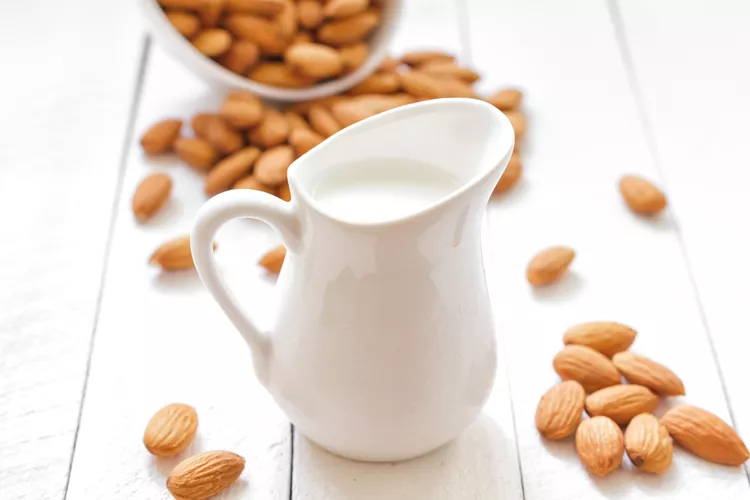Navigating Dairy Alternatives: A Guide for Lactose Intolerants

Lactose intolerance, the inability to fully digest lactose (the sugar in milk), can pose dietary challenges for many individuals. Fortunately, there is a wide array of dairy alternatives available that provide a suitable solution for those seeking to avoid discomfort. Lactose intolerance occurs when the body lacks the enzyme lactase, which is necessary for breaking down lactose in the digestive system. This can lead to symptoms such as bloating, gas, diarrhea, and stomach discomfort after consuming dairy products. For a long time we have been depending on dairy-milk for our nutrition, for calcium and sometimes for a complete meal. But now, it is not so easy to digest milk, because it is contaminated with so many pollutants and chemicals added in it or because everyone’s digestive system changed. This milk intolerance has been found in children, old and young of every age.
Symptoms of Milk Intolerance: Diarrhea, Bloating, Loose motions, Gastric. Sometimes it disturbs your intestine functioning for about 2- 3 weeks.
Nut milk, a plant-based alternative to traditional dairy milk, has gained immense popularity in recent years. Made from a variety of nuts such as almonds, cashews, and walnuts, nut milk offers a creamy texture and a range of nutritional benefits.
Types of Nut Milk/Plant Based milk
1. Almond Milk
Almonds are good source of iron, calcium, fiber and proteins. Extracting milk out of them will be highly nutritious. Eating 20 almonds at a time might find tedious but having a glass of milk with those almonds are quite easy.
2.Cashew Milk:
Cashews are rich in magnesium, iron, calcium, fiber and proteins. Cashew milk is another alternative to those who are allergic to lactose, it is very creamy and gives you instant energy.
3. Peanut Milk:
Peanuts are the richest source of protein and extracting milk from these nuts make them easy to digest and absorb in the body. Apart from proteins. peanuts are also good source of various minerals and vitamins. This milk will be packed with complete nutrients and healthy source of your diet.
4. Sesame Milk:
Sesame is the rich source of iron, calcium and many other nutrients. Nutty flavor of sesame seeds is total add-on to your taste bud.
5.Coconut Milk:
The creamiest milk with the flavors of fresh coconut, is the pure indulgence of tastefulness. Coconut has lot of health benefits like it controls cholesterol, maintains your weight, good for skin and hair, coolant for your body and many more.
6. Walnut Milk:
Walnut milk provides omega-3 fatty acids, which are beneficial for heart health, along with antioxidants and phytosterols.
7.Rice Milk:
Thin and light, rice milk is a good option for those with nut allergies.
8.Hemp Milk:
Derived from hemp seeds, it offers a nutty flavor and a balance of essential fatty acids.
Nutritional Profile:
Lactose free milk are the power house of nutrients, they are rich in minerals, vitamins, anti-oxidants and many more. Some of the known nutrients in above milk are:
- Good Source of calcium, which keeps the bones strong and teeth healthy.
- Various vitamins like vitamin-D, vitamin-K, Vitamin-E are found in nut milk, which helps in improving the immune system, good skin and absorption of many other nutrients in our body.
- Healthy fats that support brain function and heart health
- Nut Milk is good source of plant based protein.
Health Benefits:
Lactose-Free Alternative: Lactose allergy has become very common in the recent years. Nut milk is the best alternative for lactose intolerants and always an healthier choice.
Heart Health: Varieties like walnut milk and almond milk contain unsaturated fats that may help lower bad cholesterol levels, reducing the risk of heart disease.
Vegan and Plant-Based Diets: Vegans totally depend on these dry-fruit milk for their nutrition, as they are completely dairy free and plant based diet.
Bone Health: Fortified nut milks offer calcium and vitamin D, promoting healthy bones and potentially reducing the risk of osteoporosis.
Weight Management: Nut milk is often use for controlling the weight gain, as it doesn’t have as much calorie as we have in dairy-milk.
Preparation Method:
Crafting your nut milk at home is simple and allows for customization:
- Soak: Soak the desired dry-fruits/nuts of your choice for 8 to 10 hours. Soaking helps in easy blending and gives the creamier texture.
- Blend: Remove the water in which it is soaked and place the soaked nuts in the blender. Add 3-4 cups of water for 1 cup of dry fruit. Blend them until you get a smooth texture
- Strain: Strain the nut milk using muslin cloth or fine strainer, to get smooth, creamy texture milk. Discard the extracted pulp.
- Flavor and Sweeten: Add flavors of vanilla, chocolate or strawberry in your milk, with some sweeteners of your choice like honey, palm sugar, jaggery, dates etc and blend it again.
- Store: Nut milk can be stored for 2-3 days, consume it chilled for better taste and flavors.
Note: These milk are totally experimented at home and causes no side effects when consumed in appropriate amount. Choose the milk which suits your gut and gives you no adverse effects. It is suggested to drink all these milk rotationally to get all the nutrients in your body.
